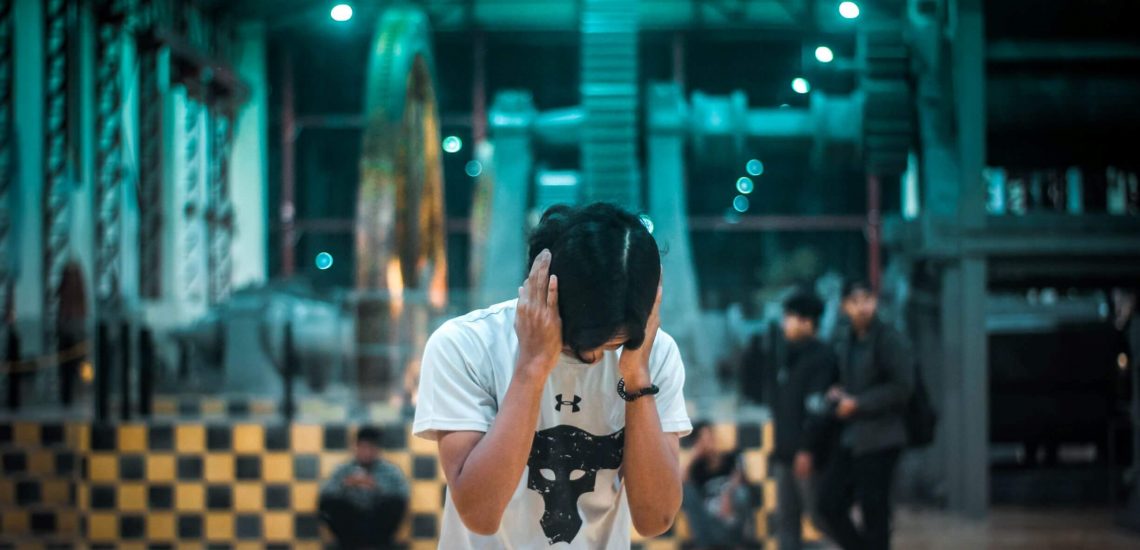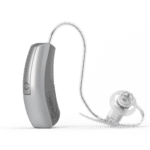For people who have acquired hearing loss, noise-induced hearing loss is one of the most common types they experience. Noise-induced hearing loss is a form of sensorineural hearing loss, which is the most common type of hearing loss in the US, according to the American Hearing Loss Foundation. Sensorineural hearing loss occurs in 23% of the population of people older than 65 years of age.
Unlike all other forms of hearing loss, noise-induced hearing loss is 100% preventable. Here, we take a look specifically at noise-induced hearing loss, the causes, and what can be done to prevent it.
How Your Auditory System Works
Sound waves enter via the outer ear and travel in your ear canal to the ear drum, where they are transformed into vibrations. These vibrations make their way to the inner ear, where they are eventually translated into electronic signals transmitted by the auditory nerve to your brain to be recognized as sound. With noise-induced hearing loss – and sensorineural hearing loss in general – the system begins to falter when there is damage to the cochlea or the nerve pathways between the inner ear and the brain.
What Causes Noise-Induced Hearing Loss
As the name indicates, noise is the main factor that leads to noise-induced hearing loss. Exposure to loud sounds, whether in an event that occurs once (an explosion, fireworks, gunfire, etc.) or over a long period of time (workplace noise, using heavy machinery, listening to music at loud volumes), could lead to permanent hearing loss.
If you’ve ever woken up from a night at a live rock show, you may have experienced a high-pitched sound in your ears. You may be woken up in the morning by loud honking or construction outside your window. Your workplace may be so loud that you cannot hear your colleague standing an arm’s length away from you. These are all instances in which you may be exposed to sounds that are so loud they could lead to permanent hearing loss.
As we make our way through our days, there are moments in which our hearing feels undeniably assaulted. There are other moments, too, in which our hearing is subtly damaged without us recognizing the consequences until years later. If we are more aware of these subtle moments of hearing damage, we are afforded the opportunity to take preventative measures where we can.
The accumulation of a lifetime of exposure to loud noises, whether through work or play, has an adverse effect on one’s hearing health. If the noise is related to your employment, consider having a discussion with your human resources department. For the most part, construction workers and airport employees are outfitted with personalized ear protection equipment. But for folks who play music for a living, or DJ at a nightclub, the protection of one’s hearing is often not considered a priority. The use of earplugs could make a big difference in preventing hearing loss, especially when one is exposed to loud decibels on a regular basis.
On the home front, moments with bursts of sound could unwittingly damage our hearing. Whether it is the constant use of a hair blow-dryer, or a weekly tending of the yard with the lawnmower, or even the infrequent, do-it-yourself construction projects with power tools and the annual fireworks display on Independence Day, these moments add up over the years. The use of earplugs or protective over-the-ear gear in these moments is recommended to prevent small levels of damage.
Researchers have recommended taking “noise diets” – moments where we sequester ourselves to a quiet place to take a break from the onslaught of loud sounds in our lives. These moments offer respite for our ears – and more often than not, these quiet moments have been found to reduce levels of stress and anxiety in our bodies as well.
Why you should get your hearing tested
As with all forms of acquired hearing loss, noise-induced hearing loss occurs gradually and may not be apparent to you right away. The best way to stay on top of your hearing health is to get your hearing tested annually. Visit us at one of our Ear to Hear locations for a free hearing test.


